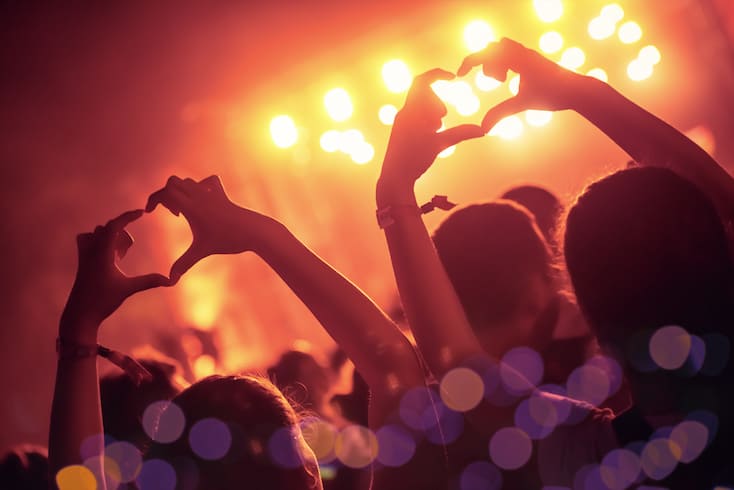
Last year, I found myself on the verge of tears during a concert. There I stood, in a sea of people, most of whom were a few years younger than me, all singing:
“Now the night is coming to an end
The sun will rise and we will try again
Stay alive, stay alive for me.”
If you’ve ever been to a big show, you know the kind of singing I mean. The kind when the real performers could remain silent, leave the stage if they wanted to, and the words would carry on. These moments are powerful. But they hold even more weight when you realize you are witnessing thousands of young people in the midst of a mental health movement.
Being part of the “older” crowd in the audience, I wasn’t tearing up for myself, necessarily. What made those few minutes so poignant was the presence of an entire generation below me — a generation of kids — that was vocal and unashamed about the struggles that come with mental health and mental illness. Kids who, despite a world offering every reason to believe things are bad and not going to get any better, will grow up with musicians, celebrities and athletes telling them they deserve andneedto be here.
Still today,as we navigate the reality of a routine-shattering pandemic, an openness about mental health pervades popular culture. Of course, the “physical” effects of our new world are paramount. People are getting sick, health care workers are making unimaginable sacrifices and the ever-present injustices of society continue. But the impacts on mental health and individuals with mental illness are here, too. And we’re talking about them.
Through pop culture, mental health gains a type of visibility that would not otherwise be possible. For better or worse, the people we hear on the radio or watch on TV have an enormous amount of power over the way we live our lives. This is especially true for young people, grasping for guidance as they form their own identities and decide what is “normal.” We cannot underestimate the effect of a relatable song lyric or a celebrity’s personal story to make us feel a little less alone and propel us to ask for help. Maybe these things seem inconsequential. Maybe they save a life.
Pop culture surely has not been the only driver in the broader mental health movement. There are countless clinicians, researchers, advocacy organizations, families and friends who are normalizing mental illness, providing critical treatment and contributing to a friendlier world for individuals with lived experience.
Pop culture is not always in the right, either, with films that inaccurately portray serious mental illness and songs that use words like “crazy” or “psycho.” However, when rappers are highlighting the National Suicide Prevention Lifeline and NFL commentators are sporting the NAMI green, I see a unique role in the mental health sphere — perfectly filled by popular culture.
Put yourself in the shoes of your 12-year-old self. Think about how much you looked up to your favorite musical artist or the basketball player whose jersey hung on your bedroom wall. If the idols and influencers of today are using that platform to advocate for mental health, I think we’re making progress.
Lyrics from “Truce” by Twenty One Pilots
Jessica Walthall is Associate Editor, Marketing Communications at NAMI.

